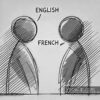discharge meaning
discharge :
the act of releasing someone from a duty or position
noun
▪ The soldier received an honorable discharge after his service.
▪ The soldier was officially released from duty.
▪ The company's discharge of the employee was unexpected.
▪ The company's release of the employee was surprising.
paraphrasing
▪ release – the act of letting go
▪ dismissal – the act of removing someone from a position
▪ liberation – the act of setting someone free
▪ removal – the act of taking someone out of a position

discharge :
to release or allow to leave
verb
▪ The hospital will discharge the patient tomorrow.
▪ The hospital will release the patient tomorrow.
▪ The company discharged its employees due to budget cuts.
▪ The company released its employees because of budget cuts.
paraphrasing
▪ release – to let go
▪ emit – to send out
▪ let go – to allow someone to leave
▪ remove – to take someone out of a position
Pronunciation
discharge [dɪsˈtʃɑrdʒ]
The word is pronounced with the stress on the second syllable, sounding like "dis-CHARGE".
Common phrases and grammar about discharge
discharge - Common meaning
noun
the act of releasing someone from a duty or position
verb
to release or allow to leave
Part of Speech Changes for "discharge"
▪ dischargeable (adjective) – capable of being discharged
▪ discharger (noun) – someone or something that discharges
Common Expressions with "discharge"
▪ discharge a duty – to perform a responsibility
▪ discharge a patient – to release a patient from the hospital
▪ discharge waste – to emit waste
▪ discharge a firearm – to fire a gun
Important examples of discharge in TOEIC
Vocabulary examples from the TOEIC test
In TOEIC vocabulary questions, discharge is often used in contexts related to releasing employees or patients.
Example of a confusing word: dismiss (to send away)
Grammar examples from the TOEIC test
Discharge as a verb often requires an object and can relate to duties or releasing people.
discharge
Idioms and fixed expressions in TOEIC
discharge a responsibility
to perform a duty effectively
terminate employment
means to end someone's job, used in formal contexts.
Differences between similar words and discharge
discharge
,
release
differences
Discharge is used to refer to the formal release from a duty or position, while release can be more general.
discharge
,
emit
differences
Discharge refers specifically to releasing from duty or position, while emit means to send out something like gas or light.
Words with the same origin as discharge
The origin of discharge
discharge originates from the Latin 'discaricare', meaning 'to free from responsibility'.
Word structure
It has the prefix 'dis-' (apart), root 'charge' (responsibility), and no suffix, so discharge means 'to free from responsibility'.
Words with the same origin
The root of discharge is 'charge'. Words with the same root include charge, charger, and charging.






